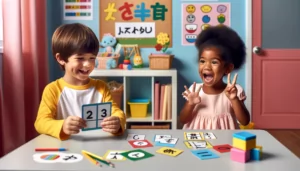Learning Japanese is a journey filled with challenges and rewards. One of the most common questions among learners is, “How long does it take to achieve fluency in Japanese?” This article explores various factors that influence the time required to learn Japanese, offering insights into creating an effective study plan.

✅ AI Essay Writer ✅ AI Detector ✅ Plagchecker ✅ Paraphraser
✅ Summarizer ✅ Citation Generator
Understanding the Complexity of Japanese
Japanese, with its unique script and complex grammar, poses a significant challenge, especially for those whose first language is considerably different. The time it takes to learn Japanese depends on various factors, including the learner’s dedication, study methods, and prior language learning experience.
Language proficiency typically ranges from beginner to intermediate and advanced levels. Each level requires a different amount of time and effort, with advanced fluency often taking the longest to achieve.
Factors Influencing Learning Time
A learner’s motivation is crucial in determining the pace of learning. Highly motivated individuals often progress faster as they are more likely to dedicate time and effort to studying.
The quality and variety of learning resources, along with a well-structured study plan, significantly impact learning efficiency. Tailoring a study plan to one’s learning style and personality can expedite the process.
The amount of time a learner can dedicate daily or weekly to studying Japanese directly affects how quickly they progress. Consistent, daily practice is key to mastering the language.
Creating an Effective Study Plan
Begin by assessing your current level – whether you’re a complete beginner or have some knowledge of the language. Set clear, achievable goals for each stage of learning.
Select resources that cater to your learning style. This might include textbooks, language apps, online courses, or immersion through Japanese media.
A balanced study plan should include learning kanji, vocabulary, grammar, and practicing listening and speaking skills. This holistic approach aids in developing a deeper understanding and fluency in Japanese.
Overcoming Challenges at Different Levels
Beginners might struggle with Japanese scripts (Hiragana, Katakana, and Kanji) and basic sentence structure. Starting with familiarizing oneself with these scripts and basic phrases is a good strategy.
At the intermediate level, expanding vocabulary and understanding more complex grammar becomes crucial. Engaging with native content and practicing conversation can be highly beneficial.
Achieving advanced fluency involves understanding nuances of the language, cultural references, and achieving a level of comfort in diverse communication scenarios.
Time Estimates for Learning Japanese
Estimates suggest that reaching a basic conversational level might take a few months to a year, while achieving advanced fluency could take several years of dedicated study.
The time it takes can also depend on the learner’s native language. Those familiar with languages that share similarities with Japanese, like Korean, may find it easier to learn.
Tips for Efficient Learning
Incorporate Japanese into your daily routine. Regular practice, even in small intervals, can significantly boost learning.
Utilize immersion techniques like watching Japanese shows, listening to Japanese music, or engaging in conversations with native speakers.
Regularly assess your progress and adjust your study plan as needed. This ensures that you are always challenging yourself and not stagnating.
Conclusion
The journey to learn Japanese is unique for each individual. While there is no one-size-fits-all answer to how long it takes to learn the language, with the right motivation, study plan, and resources, achieving fluency is certainly attainable. Remember, the journey of learning a language is as rewarding as the destination, so enjoy each step of your Japanese language learning adventure.
FAQ
Follow us on Reddit for more insights and updates.





Comments (0)
Welcome to A*Help comments!
We’re all about debate and discussion at A*Help.
We value the diverse opinions of users, so you may find points of view that you don’t agree with. And that’s cool. However, there are certain things we’re not OK with: attempts to manipulate our data in any way, for example, or the posting of discriminative, offensive, hateful, or disparaging material.